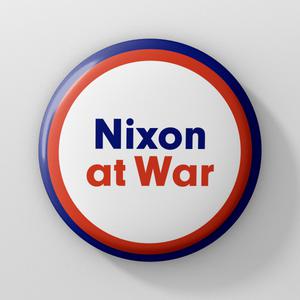
Nixon at War
PRX
From PRX, a fresh, provocative telling of the story of the Vietnam War and the president who oversaw its ugly end
- 28 minutes 44 secondsS3 Ep 7 - Tangled Web
In the fall of 1971, Richard Nixon had reason to be optimistic. The long sought China Summit had just been announced, for the following year, to great (and deserved) acclaim. Vietnam, to be sure, remained an issue, but the continuing troop withdrawal had reduced its political drag at home. With his re-election campaign now looming, the polls showed him well out in front of the presumed Democratic front-runners.
But all this good news had little effect on Nixon’s deep-rooted obsession with a growing list of real and perceived adversaries at home. And so, even as the war in Vietnam slowly abated, the war at home only escalated and expanded, against liberals, anti-war activists, Jews, East Coast elites – anyone perceived, however remotely, as a threat to his presidency. “Lashing out was Nixon’s nature,” Jack Farrell tells Kurt Andersen. “His actions were reflexive, heedless of the peril” which lay ahead, and which would ultimately drive him from office.
26 July 2021, 8:00 am - 35 minutes 19 secondsS3 Ep 6 - Off the Rails
With the publication of the Pentagon Papers in June ’71, the demons that Richard Nixon has wrestled throughout his presidency – indeed, through much of his public life – begin to gain the upper hand. “The strain of office, and the belligerency of his enemies,” Nixon biographer Jack Farrell says, “have begun to unsettle the president, dispelling the ‘mellow’ Nixon of 1968 and unleashing the self-injurious behavior of old.” Kissinger and others assure the president that he has nothing to fear from the Pentagon Papers, and might even benefit from the unflattering light they will cast on his predecessors, but the act of publication of classified documents – thousands of pages worth -- rankles deeply. Very quickly, the president’s long festering paranoia and indignation zeroes in on two of his most despised “enemies” – the press, for publishing the government’s closely held secrets, and the leakers within his own deep state, now personified by Daniel Ellsberg, for the growing threat he believes they pose to his own buried secrets.
19 July 2021, 6:00 am - 49 minutes 32 secondsS3 Ep 5 - Beginning of the End
In early February ’71, with pressure building at home to complete the withdrawal of American forces from Vietnam, Nixon puts his Vietnamization program to a crucial and very public test. With the world watching, the South Vietnamese army launches an invasion into Laos, where they will engage a formidable North Vietnamese force. US air power will support the South, but for the first time they will be on their own on the ground. The test is a debacle: facing superior military forces, the South Vietnamese sustain heavy casualties and are quickly compelled to withdraw. Nixon and Kissinger spin the defeat as best they can, but privately, it is a moment of reckoning: after six years of war, South Vietnam shows little sign of being able to sustain the war without continuing US help. Through the spring, opposition to the war grows and spreads beyond the traditional leftist and student base. In April, Senator William Fulbright’s powerful Foreign Relations Committee hears testimony from a young vet by the name of John Kerry, representing a new force – Vietnam Veterans Against the War. Clearly, the tide is turning. Faced with a grim reality, Nixon and Kissinger recognize they must find a way to prop up South Vietnam at least long enough to avoid having it collapse before the ’72 election, now only a year away.
11 July 2021, 5:00 am - 54 minutes 2 secondsS3 Ep 4 - Searchlight on the Lawn
In the spring of 1970, the war in Vietnam comes home with a vengeance. A year of secret bombing having produced no movement from the North Vietnamese, Nixon and Kissinger raise the stakes, dramatically. In late April, US and South Vietnamese ground forces invade Cambodia. The “incursion,” as the White House calls it, galvanizes the antiwar movement, which has been largely dormant since Nixon’s Silent Majority speech. Reaction is immediate and intense. On May 4th, a week of snowballing protest and campus unrest culminates in the shootings at Kent State. Four days later, a counterprotest – dubbed the Hard Hat Riot – turns violent in the streets of New York City. On May 8th, following a tense press conference, President Nixon returns to the White House, where he works the telephone late into the night, trying to manage the escalating crisis. Past midnight, he summons his valet, Manolo Sanchez to accompany him on an extraordinary encounter with unsuspecting protesters at the Lincoln Memorial.
5 July 2021, 5:00 am - 53 minutes 17 secondsS3 Ep 3 - Sideshow
In December 1968, only weeks after his election, Nixon names Henry Kissinger as his national security advisor. The appointment will prove to be the most consequential of his presidency. The two men barely know each other, but Kissinger moves swiftly and brilliantly to make himself the linchpin – some would say the architect – of Nixon’s enormously ambitious foreign policy agenda. Immediately, and with the new president’s blessing, Kissinger marginalizes both State and Defense, concentrating the making of US foreign policy within the White House. The first challenge: how to force the implacable North Vietnamese leadership back to the negotiating table. By late January ’69, a plan is in place: Operation Menu, a massive and completely secret bombing assault, not on Vietnam but on North Vietnamese army sanctuaries in neighboring (and neutral) Cambodia. Over the next eight years, the U.S. will drop more bomb tonnage on Cambodia than the combined Allied forces dropped in all of World War II. While the bombing remains largely a secret in the U.S., it fails to move the needle on negotiations with the North. By the fall of ’69, the lack of progress has re-energized the anti-war movement, which mobilizes a wave of demonstrations across the country. In response, Nixon takes his case to the country, with the Silent Majority speech, which will come to be remembered as perhaps the most effective address of his presidency.
28 June 2021, 5:00 am - 50 minutes 4 secondsS3 Ep 2 - Madame Chennault
Coming out of the conventions in August ’68, Richard Nixon begins his campaign against Hubert Humphrey, his Democratic opponent, with what looks like an insurmountable lead. Running as the peace candidate, Nixon promises a quick end to a costly and increasingly unpopular war. The strategy works, until late October, when Humphrey finally breaks with LBJ and goes public with his own opposition to the war. Overnight, the race begins to tighten. This is Nixon's last shot. He lost to JFK in 1960, by less than two-tenths of a percent – one of the closest elections in U.S. history – and isn’t about to let it happen again. So, when word leaks, a week before the election, of a possible breakthrough in LBJ’s long-stalled Vietnam peace talks, Nixon sees it all slipping away, and moves to avoid that outcome, at whatever risk. His response is to sabotage the Paris Talks, through a mysterious secret intermediary known as the Dragon Lady. LBJ learns of Nixon’s efforts to blow up the talks, but can’t reveal his source – FBI wiretaps on the South Vietnamese Embassy. “Of all of Richard Nixon’s actions in a lifetime of politics,” biographer John Farrell will later say, “this was the most reprehensible.“
Learn more at NixonAtWar.org.
21 June 2021, 7:00 am - 39 minutes 37 secondsS3 Ep 1 - October Surprise
Get in and get those files. Blow the safe and get it.
-President Nixon to aide H.R. Haldeman
For President Richard Nixon, the publication of the Pentagon Papers, in June 1971, ought not to have mattered. The malfeasance and mendacity revealed in the Times, and soon in papers across the country, had all happened under previous administrations, from Truman to LBJ. In fact, Nixon’s national security advisor, Henry Kissinger, tells the president, "I've read this stuff, and we come out pretty well in it." But Nixon cannot be mollified. It is not the contents of the Pentagon Papers that he's worried about. It is the leaking of classified information that has stoked his fury, and his fear. For Richard Nixon has secrets of his own, secrets that if brought to light, could sink his presidency. What are these secrets? Here the story flashes back, to the late summer and early fall of 1968, when Richard Nixon secures his party's nomination for the presidency and soon finds himself having to navigate the treacherous politics of the Vietnam War. His principal adversary? Not Hubert Humphrey, the other name on the ballot, but Lyndon Johnson, who has opted not to seek a second term, but remains a formidable player, waging a desperate battle to close out the war and salvage his tattered legacy.
Learn more at NixonAtWar.org.
14 June 2021, 7:00 am - 2 minutes 20 secondsTrailer - Welcome to Nixon at War
Most accounts of the collapse of Richard Nixon’s presidency begin with Watergate —- the now iconic tale of a bungled break-in and the misbegotten cover-up that followed. But what led to Watergate? How —- and more puzzlingly, why —- did one of the shrewdest, most gifted political figures of his time become embroiled in so manifestly lunatic an enterprise in the first place? Intrigued by that question, writer/journalist Kurt Andersen takes a deep dive into the vast archives at the Nixon Library and emerges with an answer he wasn’t expecting: While Watergate doubtless accelerated Nixon’s spectacular fall, it was the Vietnam War that led inexorably to the break-in, and from there to the sinking of his presidency.
For Andersen, who came of age in the Vietnam era, that answer in turn begs another, larger question: How did Richard Nixon, with all his foreign policy savvy, allow himself to get trapped in the same quagmire he had watched engulf his predecessor, Lyndon Johnson? These questions are the central concerns of Nixon at War. Over the course of seven episodes, Andersen peels back the onion and emerges with a new and deeper understanding of both the man and the war, and of the complex linkage between them.
11 June 2021, 6:00 pm - 53 minutes 11 secondsS2 Ep 7 - Post Script
So what do historians think, fifty years out, about LBJ’s Great Society and its long term impact on American life and politics? In early February, series correspondent Melody Barnes put that question to three distinguished scholars, gathered before a live audience at the Miller Center for Presidential Studies, at the University of Virginia in Charlottesville. Their perspectives are a thoughtful summing up of the Johnson Years, and a good place, we think, to close out this podcast series. The panelists: Kevin Gaines, the Julian Bond Professor of Civil Rights and Social Justice at the University of Virginia; Guian McKee, associate professor in Presidential Studies at the Miller Center; and Julian Zelizer, Malcolm Stevenson Forbes, Class of 1941 Professor of History and Public Affairs at Princeton University. Our thanks to them for their insights, and to you our listeners for your interest.
17 March 2020, 6:27 am - 39 minutes 45 secondsS2 Ep 6 - The Engineer
Five decades after Lyndon Johnson first unveiled his lofty vision of a Great Society, politicians and pundits are still arguing about what he accomplished, and what he didn’t. This final installment will look at the legacy of LBJ's Great Society through the lens on one of its most enduring and popular programs — Head Start. Today, the Head Start program is alive and well, and so deeply woven into the fabric of American life that few know of its roots in the Great Society, or of the conflict and controversy that plagued many of its early programs.
Features Alice O’Connor, Professor of History and Director of the Blum Center on Poverty, Inequality, and Democracy at the University of California Santa Barbara, and commentary from historians Rhonda Y. Williams, Josh Zeitz, and Julian Zelizer. Learn more at LBJsGreatSociety.org.
10 March 2020, 7:08 am - 37 minutes 33 secondsS2 Ep 5 - Give Us the Ballot
By his own account the Voting Rights Act of 1965 was Lyndon Johnson’s greatest achievement – the jewel in the crown of the Great Society, and widely considered the most effective piece of civil rights legislation in American history. This episode focuses on the extraordinarily eventful eight-month period — January to August 1965 — when the battle for Voting Rights was joined and ultimately fought to a successful conclusion. The outcome was hard won, and in doubt up until the last frantic weeks of negotiation and maneuvering in the wake of the bloody protests in Selma, Alabama. We hear from historian Rhonda Y. Williams, the John L. Seigenthaler Chair in American History at Vanderbilt University, about the complex and precarious alliance forged between the President on the inside, and Dr. Martin Luther King and the civil rights movement on the outside.
Includes interview excerpts from Washington University Libraries, drawn from the Henry Hampton Collection. This digitized resource includes complete video interviews with Civil Rights Movement leaders, recorded for the influential and award-winning documentary film, Eyes on the Prize.
Learn more at LBJsGreatSociety.org.
3 March 2020, 6:00 am - More Episodes? Get the App
Your feedback is valuable to us. Should you encounter any bugs, glitches, lack of functionality or other problems, please email us on [email protected] or join Moon.FM Telegram Group where you can talk directly to the dev team who are happy to answer any queries.
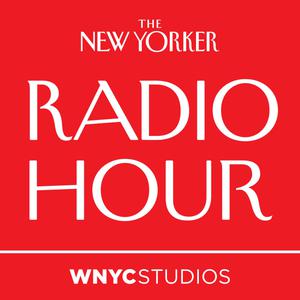 The New Yorker Radio Hour
The New Yorker Radio Hour
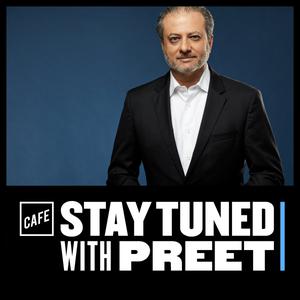 Stay Tuned with Preet
Stay Tuned with Preet
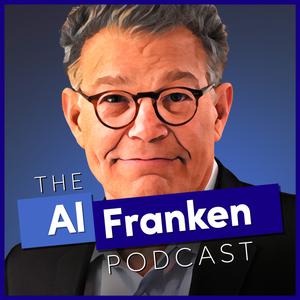 The Al Franken Podcast
The Al Franken Podcast
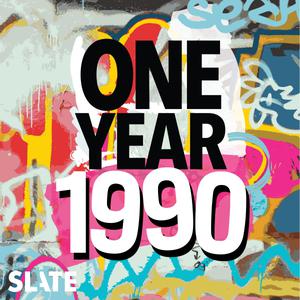 One Year
One Year
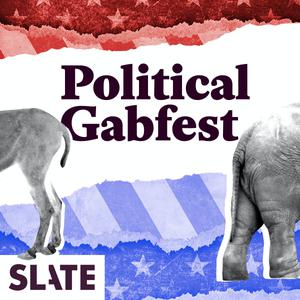 Political Gabfest
Political Gabfest
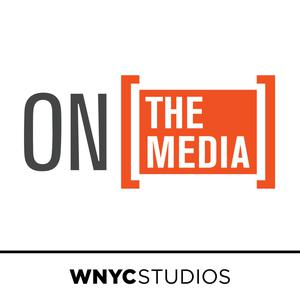 On the Media
On the Media